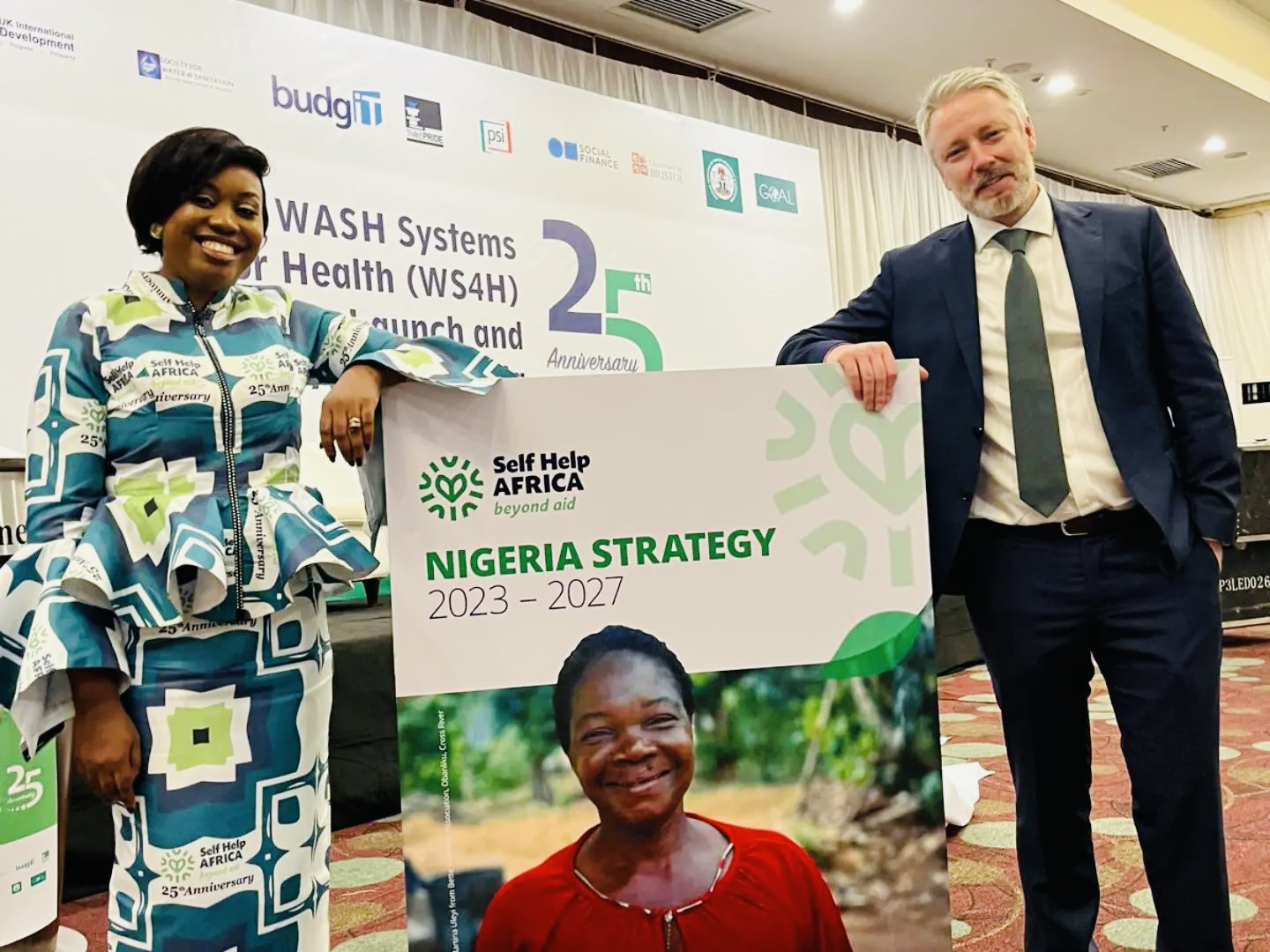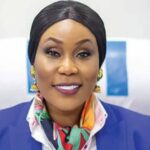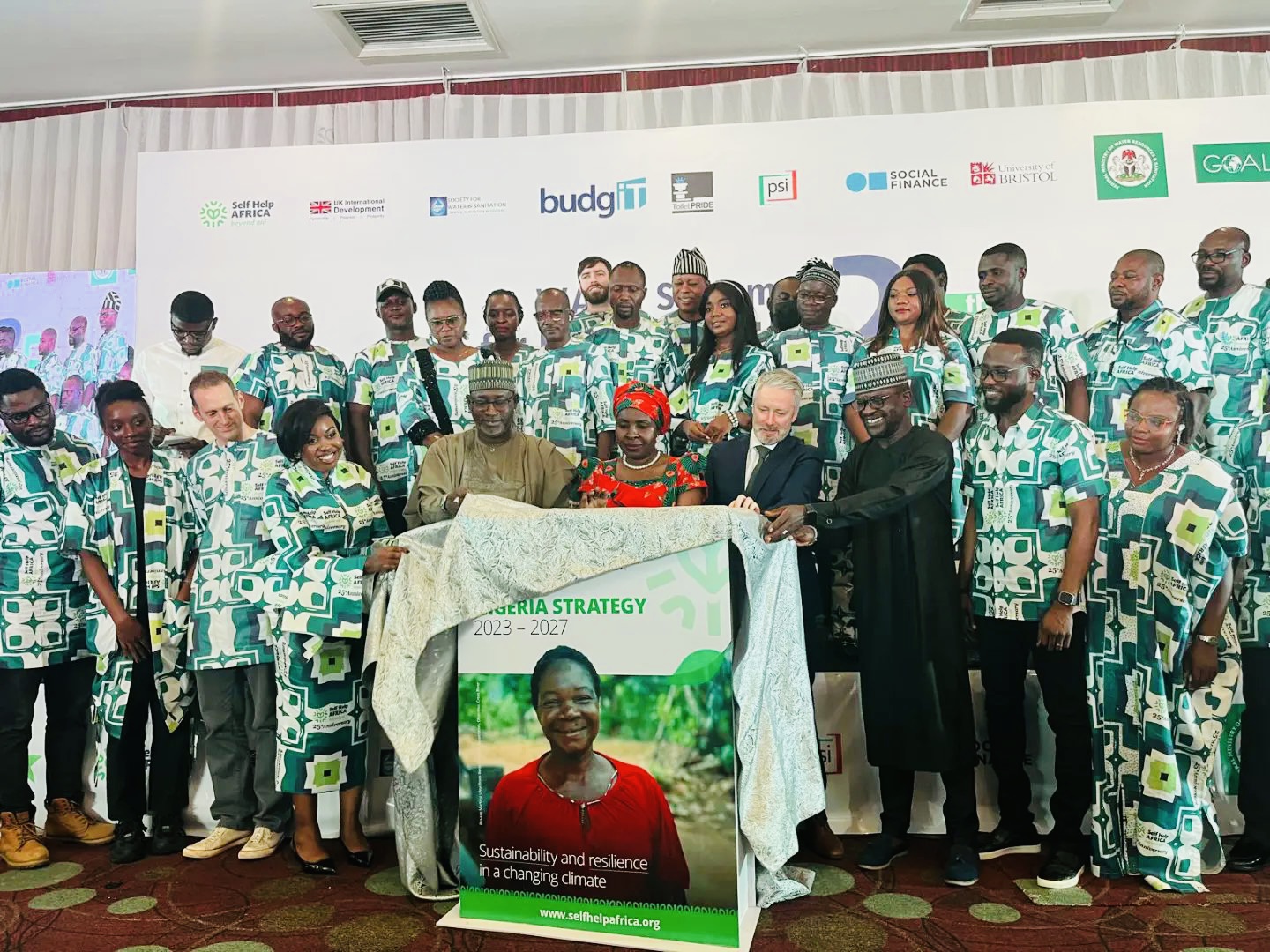Self Help Africa unveils £5m WASH systems for Health Programme
By Tosin Kolade
Self Help Africa, an Irish charity organisation, has unveiled its five million pounds Water, Sanitation, and Hygiene (WASH) Systems for Health Programme to enhance access to inclusive, reliable, and climate-resilient water and sanitation services in two states.
The states are Cross River and Kano.
Dr Joy Aderele, Self Help Africa’s Country Director, made this known at the organisation’s 25th Anniversary event in Abuja.
She said the organisation is committed to promoting sustainable livelihoods and ensuring healthy lives for all amid a changing climate.
Aderele stated that the mission of the organisation is to alleviate hunger, poverty, social inequality, and the impacts of climate change through community-led, market-based, and enterprise-focused approaches.
According to her, the newly-launched five-year programme aims to promote sustainable food systems by conserving agriculture and diversifying production through climate-smart agriculture.
The country director highlighted the organisation’s expertise in WASH and waste management, providing sustainable, safe water supply in Benue and Cross River states to ensure safe water for communities.
She said through its Community-Led Total Sanitation approach, they have implemented sanitation and hygiene improvement projects in both states, reaching over 1.2 million individuals and promoting open defecation-free environments.
On livelihood interventions, Aderele mentioned that small business owners have been empowered by providing access to livelihood assets and addressing negative social norms that limit women’s participation in decision-making processes.
 Earlier, Nigeria’s Minister of State for Water Resources and Sanitation, Dr Bello Goronyo, noted the significant progress made in the country’s water, sanitation, and hygiene (WASH) sector over the past decade.
Earlier, Nigeria’s Minister of State for Water Resources and Sanitation, Dr Bello Goronyo, noted the significant progress made in the country’s water, sanitation, and hygiene (WASH) sector over the past decade.
He emphasised the collaborative efforts of his ministry, alongside dedicated organisations and community leaders, in achieving Open Defecation Free (ODF) targets and enhancing sanitation standards.
He said the FCDO-supported programme was a crucial catalyst for further advancement in the WASH sector, noting the importance of strengthening WASH systems, engaging communities, and empowering local stakeholders to drive sustainable change.
He pledged the ministry’s commitment to building upon past successes, outlining future priorities, including expanding equitable WASH services with a focus on underserved communities.
He emphasised the utilisation of innovative technologies, reinforcing partnerships across sectors, and promoting accountability and transparency to ensure universal access to safe and sustainable WASH infrastructure.
The minister however affirmed the collective effort required from international partners and the Nigerian people to continue the country’s WASH success story, which would pave the way for a healthier and more prosperous future for all.
Mr Dave McConalogue, Head of Health at the Foreign, Commonwealth and Development Office (FCDO), highlighted the threats of climate change to ecosystems, emphasising the impact on water and fossil fuels due to rising temperatures and extreme weather events.
He stressed the importance of water availability and quality for people’s well-being, urging for carbon reduction efforts to mitigate climate change’s effects on essential resources.
 McConalogue noted the need to build climate resilience by adapting water and agricultural systems to climate shocks, noting the crucial role of water experts in promoting sustainable water management practices.
McConalogue noted the need to build climate resilience by adapting water and agricultural systems to climate shocks, noting the crucial role of water experts in promoting sustainable water management practices.
He cited successful achievements in climate resilience, including reports on conservation techniques and initiatives promoting climate-smart agricultural practices like agroforestry.
Self Help Africa CEO, Mr Feargal O’Connell, noted the importance of the Nigeria Strategy 2023-2027 in enhancing environmental quality and system strengthening.
 He highlighted the programme’s focus on sustainable landscapes, resilient food systems, and healthy communities, expressing confidence in its ability to drive economic growth and achieve gender equality outcomes.
He highlighted the programme’s focus on sustainable landscapes, resilient food systems, and healthy communities, expressing confidence in its ability to drive economic growth and achieve gender equality outcomes.
O’Connell stressed the broader impact of sustainable WASH Systems on economic growth, gender equality, and hygiene challenges, thanking the stakeholders for their support and underscoring the programme’s potential to benefit communities.
He also expressed gratitude to government partners for their collaboration, emphasising Nigeria’s strong relations with global partners in addressing water sanitation issues.
Highlight of the event include a panel discussion on ‘WASH Systems Strengthening and its Impact on Health Outcomes’, with discussants emphasising the role of collaborative efforts, systems strengthening and deliberate fundings for WASH sector sustainability. (NAN)
Edited by Sadiya Hamza
Published By
- Agriculture and Environment Desk Controller/Website Content Manager.
Has also recently published
 SportsJuly 15, 2025Oluwatola wins 4th AFNIS Golf tournament
SportsJuly 15, 2025Oluwatola wins 4th AFNIS Golf tournament General NewsJuly 15, 2025Okah-Donli pays tribute to Buhari
General NewsJuly 15, 2025Okah-Donli pays tribute to Buhari Economy/BusinessJuly 14, 2025Firm empowers 250 youths in hospitality
Economy/BusinessJuly 14, 2025Firm empowers 250 youths in hospitality FeaturesJuly 14, 2025Call to bar: The unstoppable journey of 5 IDPs in Edo
FeaturesJuly 14, 2025Call to bar: The unstoppable journey of 5 IDPs in Edo




